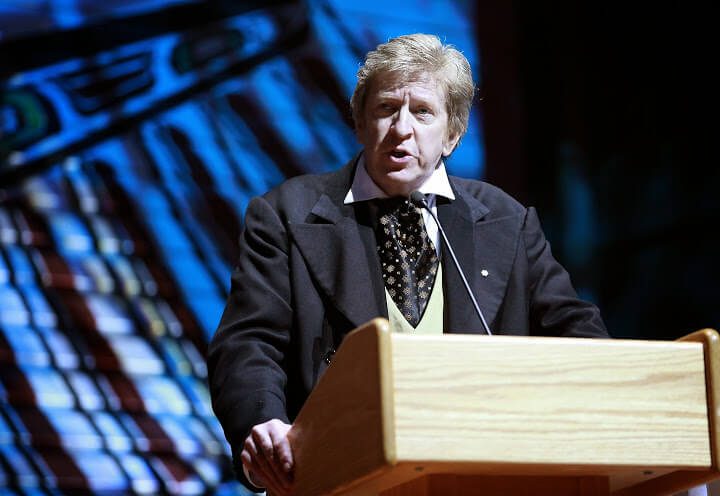Writing in the National Post, Macdonald-Laurier Institute Senior Fellow Dwight Newman  argues that the Supreme Court showed a “remarkable disregard” for the legal concept of precedent in a recent decision on the right to strike.
argues that the Supreme Court showed a “remarkable disregard” for the legal concept of precedent in a recent decision on the right to strike.
The decision reversed the court’s previous rulings on the issue and created a constitutional right to strike.
“Whatever one thinks of delicate labour relations issues, the majority’s reasoning is unfortunately well short of the standards we should demand from our best judges”, Newman wrote.
By Dwight Newman, Feb. 26, 2015
In the abstract, nobody designing a democratic system of government would suggest that our largest societal decisions should be made by nine unaccountable people exercising their complete discretion — no matter how wise those people were. The decisions of the Supreme Court of Canada are meant to be guided by careful legal reasoning and by judicial precedent, and must include detailed reasons for its decisions. It also subject to potential override by the legislative bodies in the event of disagreement on interpretation of certain Charter sections — indeed, some recent cases could invite this, undermining the Court’s authoritativeness on constitutional interpretation.
Recent decisions of the Supreme Court have shown a remarkable disregard for precedent. The law is obviously not unchanging, but unjustified departure from precedent risks undermining the Court’s role as legal arbiter. In each case, we can ask: is this disregard justified?
The recent Saskatchewan Federation of Labour case, in which a five-justice majority of the Court reversed the Court’s past decisions on the issue and created a constitutional right to strike, is an example of the Court gone astray. Whatever one thinks of delicate labour relations issues, the majority’s reasoning is unfortunately well short of the standards we should demand from our best judges. It will have challenging consequences, without having been justified in adequate legal reasoning.
The decision is not short of potential legal sources. It purports to rely on dozens of past cases, dozens of academic articles, international instruments, and even the constitutions of half a dozen other states that have entrenched a constitutional right to strike. What is missing is a well-reasoned explanation of how this collection of stuff actually leads to the conclusion that section 2(d) of Canada’s Charter of Rights protecting “freedom of association” contains a constitutional right to strike.
Canada specifically contemplated such a right when the drafting process for the Charter was underway in 1982 and specifically excluded it — unlike the half dozen states the Court found that had included such a right in their constitutions. How the fact that other states included a right in their constitutions has anything to say about whether Canada’s constitutional text includes it gets no explanation in the judgment. Notably, most of those constitutions predated the 1982 Charter, so the fact that they included a right to strike and Canada’s excluded it does not give any logical reason why the Court should create such a right today.
Remarkably, in at least one instance, the majority does not even cite the most current version of one of the constitutions it cites but ends up citing a prior constitution. Putting it bluntly, the majority judgment of Justice Abella plays a bit loose with its sources in other ways as well. A significant part of the judgment traces through international human rights bodies’ views on the right to strike and suggests a clear international consensus in favour of a right to strike as part of freedom of association. The dissenting judgment of Justices Rothstein and Wagner rightly points out that whether there is a right to strike in international human rights law is actually a contested matter amongst international bodies.
In one instance, they even show that the “decision” cited by Justice Abella was not a judicial decision and did not receive support at the decision-making body that is higher up the hierarchy than the committee she had cited. That goes unacknowledged in her decision, which simply continues to cite sources as if they definitively resolved things that they do not. The judgment offers no real explanation of why cherry-picked international law material would have anything significant to say about the contents of a section of Canada’s Charter.
In some ways, the main potential argument of the majority is that there has been a trend in some recent decisions toward readings of Canada’s freedom of association provision that protect greater labour rights. Explaining this, Justice Abella says that “the arc bends increasingly toward workplace justice” and says, of recognizing a right to strike as protected, that “[i]t seems to me to be the time to give this conclusion constitutional benediction”.
Her colourful language — and her bold tendency to “give constitutional benediction” rather than to more cautiously apply the law — should not distract from the real questions. Recent cases have said that meaningful collective bargaining has constitutional protection. As the dissent points out, the fact that a constitutional case can be pursued over government failures to engage in meaningful collective bargaining arguably makes strikes less necessary than if there were no such opportunity. The “arc” leading to a constitutional right to strike may be more metaphorical than logical.
On one reading, the majority judgment constitutionalizes a right to strike only where necessary to meaningful collective bargaining rights. But many features of the judgment suggest it will be read as a broader constitutionalization of a right to strike, with restrictions on the right to strike always subject to constitutional challenge and constitutional analysis for their justification. That rigidly entrenches a particular labour relations model and takes away from opportunities to develop new models over time.
There could be further unexpected consequences as well. Governments do not resort lightly to back-to-work legislation, but when they do, they will now presumably be subject to constitutional litigation. It would not be surprising — and might be legally prudent — for governments to make proactive use of the notwithstanding clause in the special circumstances of various pieces of back-to-work legislation, simply to avoid unnecessary constitutional litigation. The case may yet open real precedent for the notwithstanding clause. Depending on how governments act in the years ahead, the majority’s weakly reasoned constitutional judgment in Saskatchewan Federation of Labour may actually trigger a process of reducing the role of the Supreme Court of Canada in constitutional interpretation.
Dwight Newman is a senior fellow of the Macdonald-Laurier Institute and Professor of Law at the University of Saskatchewan.





